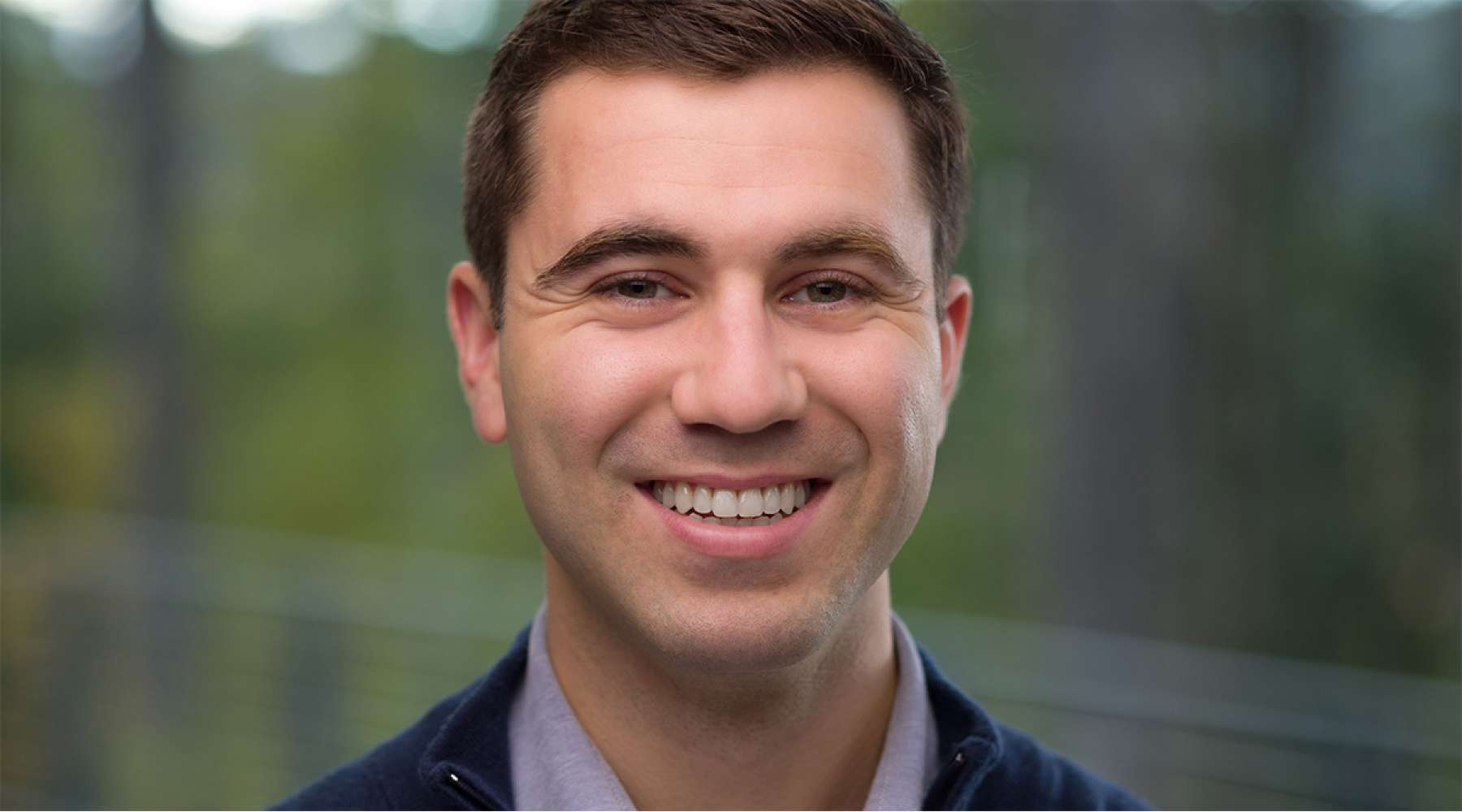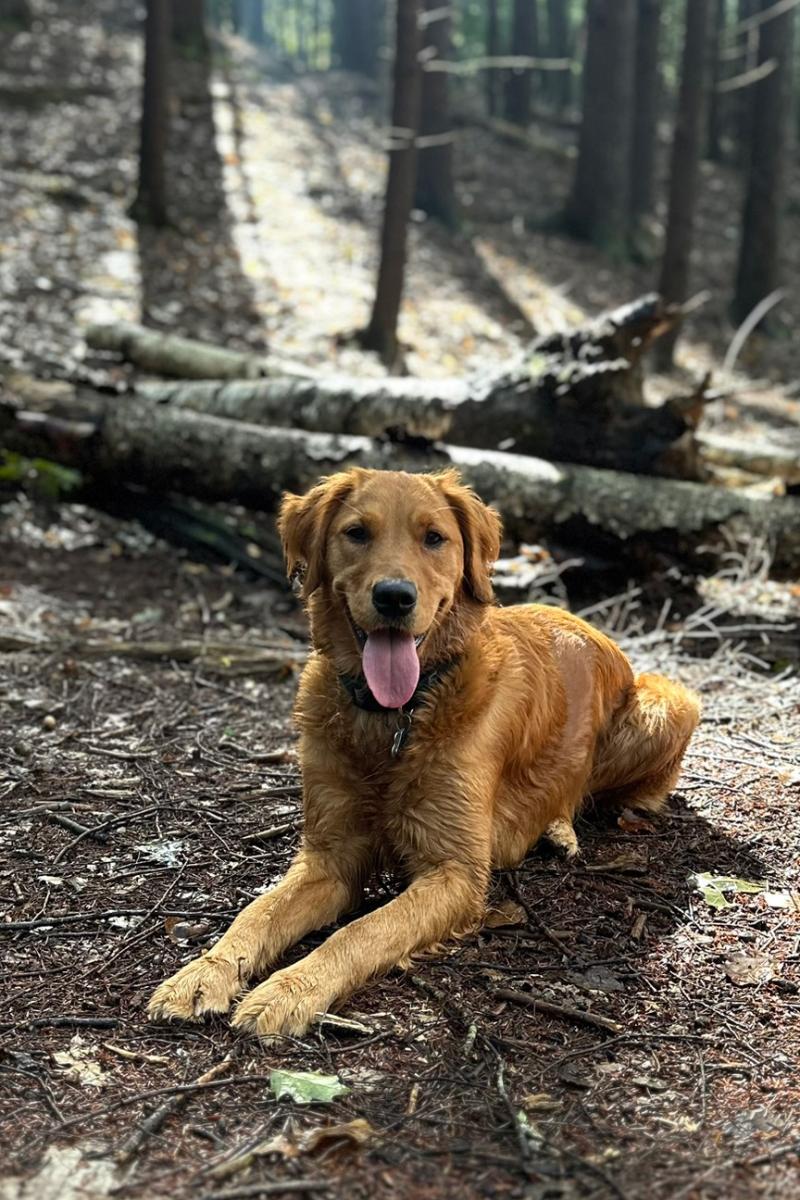
Members of the Tuck community reflect on their goals, accomplishments, inspirations, and passions as part of the Many Voices, One Tuck series.
What accomplishment are you most proud of?
One of my biggest accomplishments was helping an organization affiliated with my tribe, the Lumbee Tribe of North Carolina, securing solar energy for their workforce development and education office. In my career before Tuck, I worked for a solar impact investment fund that focused on bringing clean, affordable renewable energy to underserved communities in the U.S. We had the opportunity to partner with my tribe and I was asked to lead the project. I worked with the board of directors for the workforce development agency affiliated with the Lumbee Tribe to explore financing options, contract the project, and then develop and install the solar system on their roof.
The accomplishment was not just completing the deal but rather enabling an organization in my tribe to secure clean, affordable power—resulting in more than $80,000 in savings on utility bills throughout the solar contract. Those savings will be reinvested in programs that provide my family and other Lumbee youth access to better education and workforce development opportunities.
I have long been striving to find ways that I can leverage my skills and resources to give back to my tribe, and I finally felt that I was able to do so with this opportunity. When it was time to turn on the solar system, Sunwealth flew me down to Pembroke, North Carolina (where my family is from) to speak at the ribbon cutting ceremony. Seeing some of my family and other Lumbee community leaders there—and having the opportunity to share how important the project was to me and our community—was one of my proudest moments.

Sukha enjoying a rest in the shade during a run through Pine Park.
What keeps you busy? How do you like to spend your time outside of work?
While I have the opportunity to be in Hanover, I love to run in Pine Park and on other local trails with my golden retriever puppy, Sukha (her name means “happiness” in Sanskrit). She loves running by my side unleashed, and I can clear my mind and appreciate the beautiful forest we live in for brief moments on busy days. I also like to bike along the Connecticut River and through neighboring towns in the Upper Valley, cook for friends, and recently, I have been learning to build in the woodworking shop open for the Dartmouth community (an incredible resource). I also spend lots of time speaking with current Dartmouth undergrad students, young alumni, and prospective Tuck students who are interested in climate-related career paths, as well as prospective Consortium applicants who are interested in coming to Tuck.
Describe an ah-ha moment for you—a defining moment that changed the course of your life, career, or altered your way of thinking.
When I was in college, I studied abroad in rural areas of South Africa and then returned to the same region twice for research funded by the school. Over three months, I met with more than one hundred families who struggled to access basic public services that many folks in the U.S. take for granted, such as clean water, sanitation delivery, and electricity. Having never seen poverty as extreme as what I experienced while in South Africa, I began to think about personal belongings and public services differently. These experiences shaped one of my career goals—to bring clean electricity to as many families as possible, both in developing countries like South Africa and in underserved communities in the U.S. I believe solving energy poverty is essential to improving the lives of low-income families across the globe.
What does diversity, equity, and inclusion mean for you today?
I think about DEI in every context, whether related to my family and relationships, social groups, organizations at Tuck, or professional settings. I always think about who is in the room with me or leading the organization I am part of, and I ask myself how the dynamics of DEI affect this context. I believe that in any context, diversity of background, experiences, and opinions is critical to achieving the best outcomes. To achieve these outcomes, all voices need to be empowered. Right now it is especially critical for those from underrepresented backgrounds to be uplifted and heard to improve DEI for the future.
In your opinion, what makes a good leader?
I had the privilege of taking Leadership out of the Box with Professor Ella Bell Smith this past fall, where we spent every week discussing this question. To me, a good leader is one who can empower others to be their best and full selves.
Jordan came to Tuck pursuing a career in climate venture capital with a desire to support underrepresented founders. He is a Director for the Tuck Social Venture Fund, Consortium Fellow and Liaison, and Fellow at the Revers Center for Energy, Sustainability, and Innovation. Last year, Jordan helped to launch Greenshot, Dartmouth's climate solutions accelerator. He was most recently a Summer and Fall Associate with Powerhouse Ventures. Prior to Tuck, Jordan held roles in climate VC, renewables project finance, and power and utilities investment banking at Fifth Wall, Sunwealth, and Mizuho Americas. Jordan graduated from Dartmouth College with degrees in Environmental Studies and Development Economics. Jordan is a member of the Lumbee Tribe of North Carolina.
Many Voices, One Tuck is open to all members of the Tuck community, including students, alumni, faculty, staff, Tuck Executive Education and Tuck Bridge participants, and MHCDS graduates. Share your story.